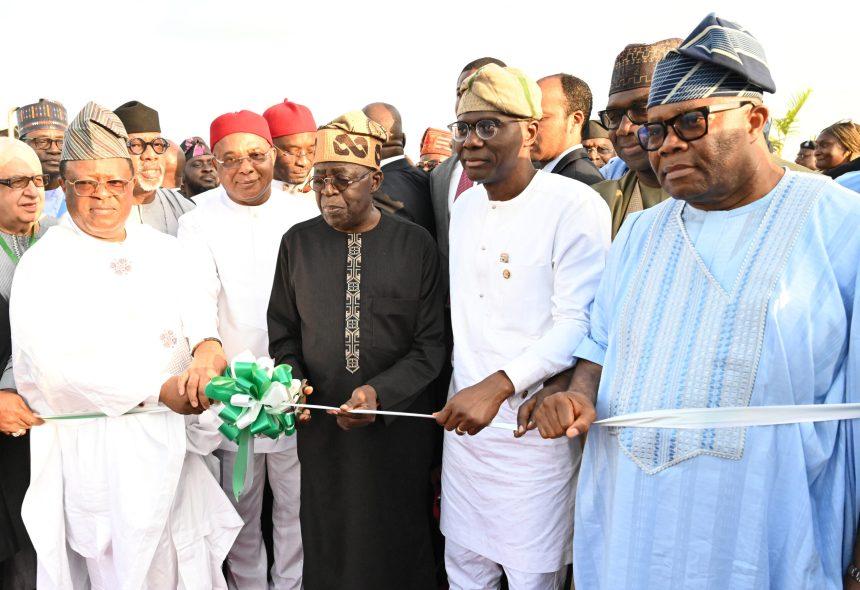President Bola Tinubu has officially launched the Lagos-Calabar Coastal Highway, a landmark project aimed at improving access to production and marketing centers for 30 million Nigerians.
The announcement was made during a ceremony in Lagos on Sunday, marking the commencement of this ambitious 700km highway project.
In his remarks, President Tinubu highlighted the multiple benefits of the new coastal highway. “During construction, the road will provide direct employment for thousands of people and indirect employment for tens of thousands more. This project is opening economic opportunities for millions,” he stated. The president emphasized that the highway would fast-track community development, bringing progress closer to the people and improving access to production and marketing centers.

The highway, which began construction in March, will span nine states with additional spurs extending to northern states. Despite facing criticism and scrutiny from the public and the National Assembly over the timing of the project and the necessary demolition of some buildings, the federal government has pressed forward.
Last Thursday, Minister of Works David Umahi revealed that 750 houses along the highway’s path have been marked for demolition, with the government allocating N2.75 billion in compensation to affected property owners. However, some stakeholders argue that the compensation does not fully cover their investments.
READ ALSO: President Tinubu Launches N15 Trillion Lagos-Calabar Coastal Highway Project
Addressing these concerns, President Tinubu appealed for public understanding and highlighted the project’s significance. “We all must make some sacrifices to enable our country to grow,” he said, assuring the public that the government would provide appropriate compensation and support.
The president described the Lagos-Calabar Coastal Highway as a symbol of hope, unity, and prosperity for Nigerians. “This project is more than just a road – it is a symbol of hope, unity, and prosperity. It will connect our communities in nine states, foster trade and commerce, boost tourism, and create new opportunities for generations to come,” Tinubu said.
The project is expected to generate significant economic benefits, similar to Ireland’s Wild Atlantic Way, which brings in 3 billion euros annually in tourism revenue. President Tinubu expressed gratitude to the engineers, workers, and stakeholders involved in the project, praising their dedication and expertise.
READ ALSO: Controversial Lagos-Calabar Coastal Highway Project Set for Inauguration by President Tinubu
Emphasizing safety, sustainability, and social responsibility, the president urged all stakeholders to collaborate to ensure the project’s success and lasting legacy. “This is not only a legacy project of this administration but a dream come true that will connect neglected towns and cities along the coastal route,” he said.
The highway will also feature two spurs linking it with the Sokoto-Badagry Expressway and the African Trade Route, enhancing connectivity across Nigeria. Minister of Works David Umahi highlighted the use of concrete pavement for the road, ensuring durability and longevity.
The federal government has also established a committee to review, assess, and compensate landowners affected by the construction. This committee includes representatives from the ministry, Lagos State, affected communities, and other stakeholders, tasked with verifying eligibility, assessing property dimensions, and determining appropriate compensation.
As the Lagos-Calabar Coastal Highway project moves forward, it promises to be a transformative infrastructure development, enhancing connectivity, facilitating economic growth, and improving the quality of life for millions of Nigerians.



